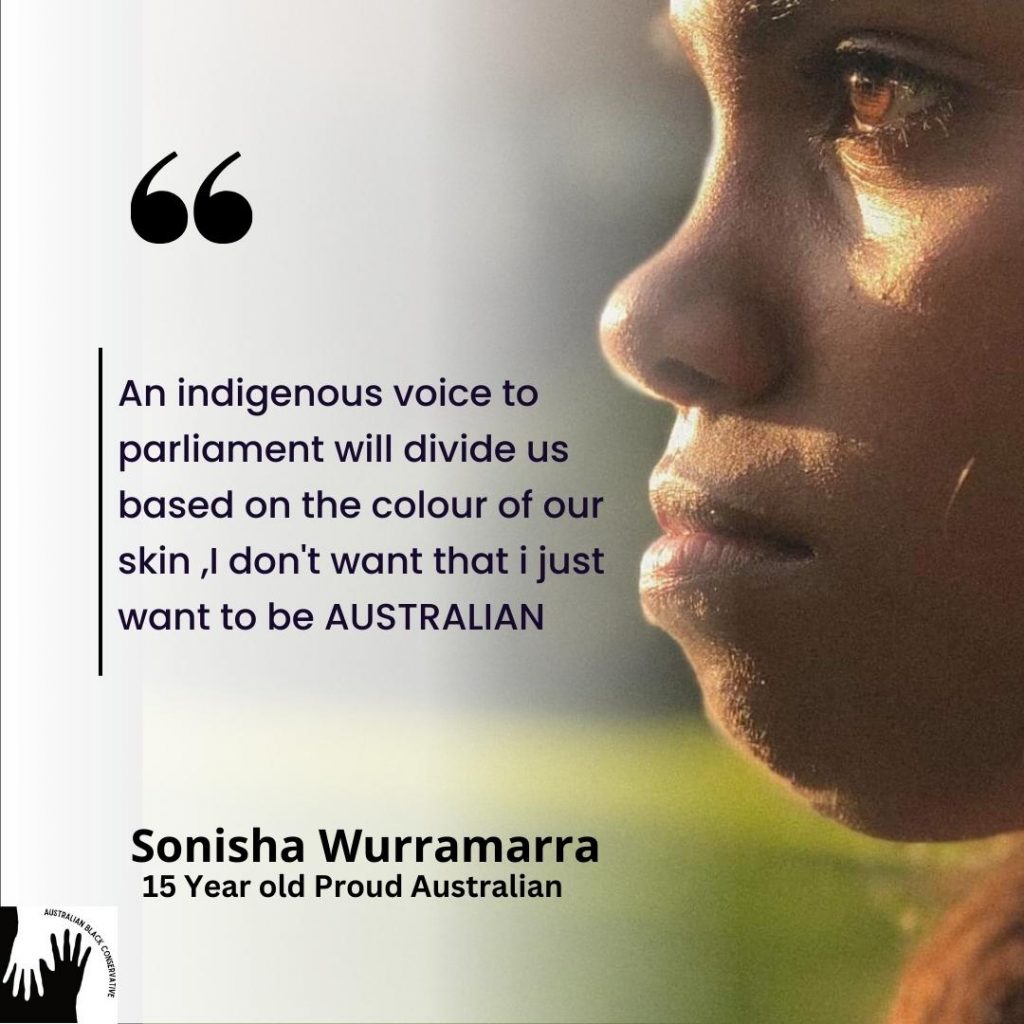Minister for Aboriginal Affairs Linda Burney has made emotional appeals for Australians to agree to the Voice, a constitutionally enshrined extra body of representation for people of a particular race, on the basis that this will resolve problems in aboriginal communities.
She says the Voice is necessary to resolve problems of health, housing, jobs and education. But some $30 billion per year is allocated to aboriginal welfare, including these areas. This is more than either Medicare, which provides health services for every Australian, or the NDIS, which provides support and care for people with a disability.
People claiming aboriginal descent make up about 3% of all Australians. Nine percent of members of government have aboriginal heritage. Aboriginal people have the same voice in government as every other Australian. If there are still problems in aboriginal communities, how is an additional layer of bureaucracy in Canberra going to help?
Secondly, there are already multiple bodies which represent aboriginal issues and which provide advice to government. Chief among these is the National Indigenous Australians Agency, which receives funding of some $3 billion per year, to do exactly what Linda Burney claims she wants the Voice to do. If considering issues relevant to aboriginal people and lobbying on their behalf is not being done adequately, most Australians would want to know why, and what has happened to the vast amounts of money those agencies have received.
Finally, while proponents of the Voice claim to represent most aboriginal people, it is becoming very clear they do not. Aboriginal leader Warren Mundine says the Voice is not what aboriginal people want.
“Let’s start with the supposed claim that 80 per cent of Aboriginals support the Voice based on an Ipsos poll in January. The poll was commissioned by the Uluru Dialogue, the lobby group for the Uluru Statement. And it surveyed only 300 people. I guess it depends which 300 people you speak to. I’ve personally spoken to well over 300 Aboriginals from all over Australia, including from remote and regional Australia. Almost without exception, all have told me they either oppose the Voice, don’t understand it (or haven’t even heard of it) or are deeply cynical about it.”

A large group of aboriginal people from around Australia travelled to Canberra to meet with Voice proponents. They wanted to explain that they did not want to be separated from other Australian by race, and that they believed the Voice would nothing for them or their communities. Labor leaders and other Voice proponents refused to meet them. No wonder Jacinta Price has said that they do not need another voice, that what they needs is ears.




Leave a Reply